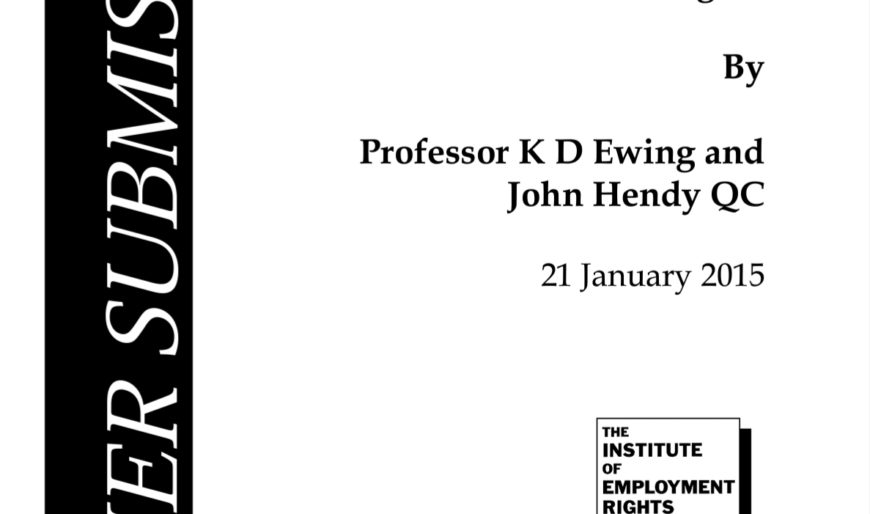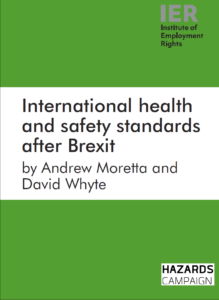An IER submission to the BIS Inquiry into the Transatlantic Trade and Investment Partnership TTIP and Labour Rights
IER experts warn of the potential for NHS selloffs and the dilution of workers' rights in the TTIP Free Trade Agreement.

- Much concern has been expressed about the TTIP, much of it in the UK related to its impact on the privatisation of the NHS. Across Europe concern has been expressed about its impact on the democratic process and the rule of law by the inclusion of the ISDS mechanism. In fact over 145,000 of the 150,000 responses (97%) to consultation conducted by the European Commission were opposed to ISDS.
- But there is also concern about many other aspects of TTIP, including food and environmental standards and the influence of multi-national corporations in lowering standards in new regulations. Our concern is that insufficient attention has been paid to the potential impact of TTIP on labour standards, which we fear will be negative. For European workers in particular it will lead at worst to a race to the bottom, and at best to a regression to the mean, which is more likely to be closer to US standards than to European standards.
- The working text of TTIP is, of course, secret – even from the members of the Parliaments of the European nations on behalf of which the agreement is being negotiated. However, the text is likely to be consistent with the texts of the EU/Canada trade agreement (CETA) and the EU/Korea trade agreement (EUKFTA), both of which have been published. CETA comes in at 1634 pages whereas EUKFTA is a mere 1426 pages.
- Hidden in this morass of print in both CETA and EUKFTA is a chapter on trade and labour which contains a commitment to the minimum labour standards of the International Labour Organisation (ILO).
Downloads
- TTIP-and-Labour-Rights-January-2015.pdf - 151.13 KB








